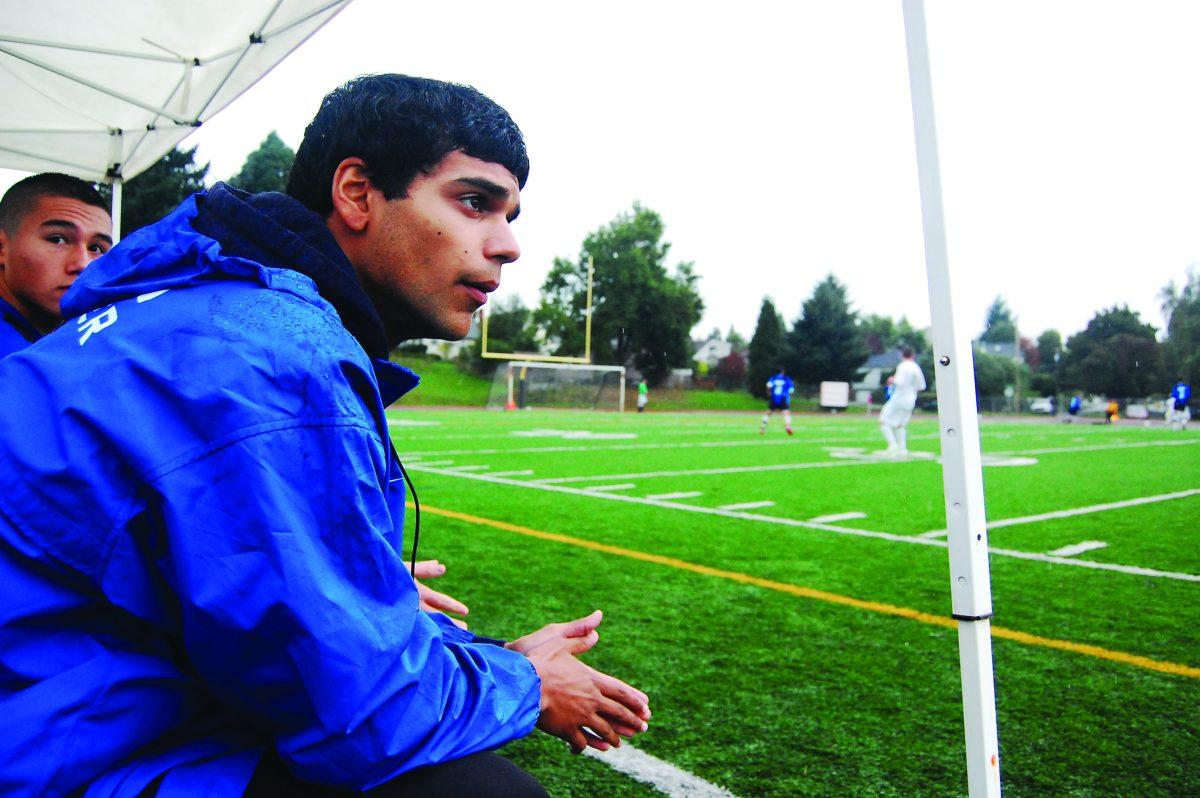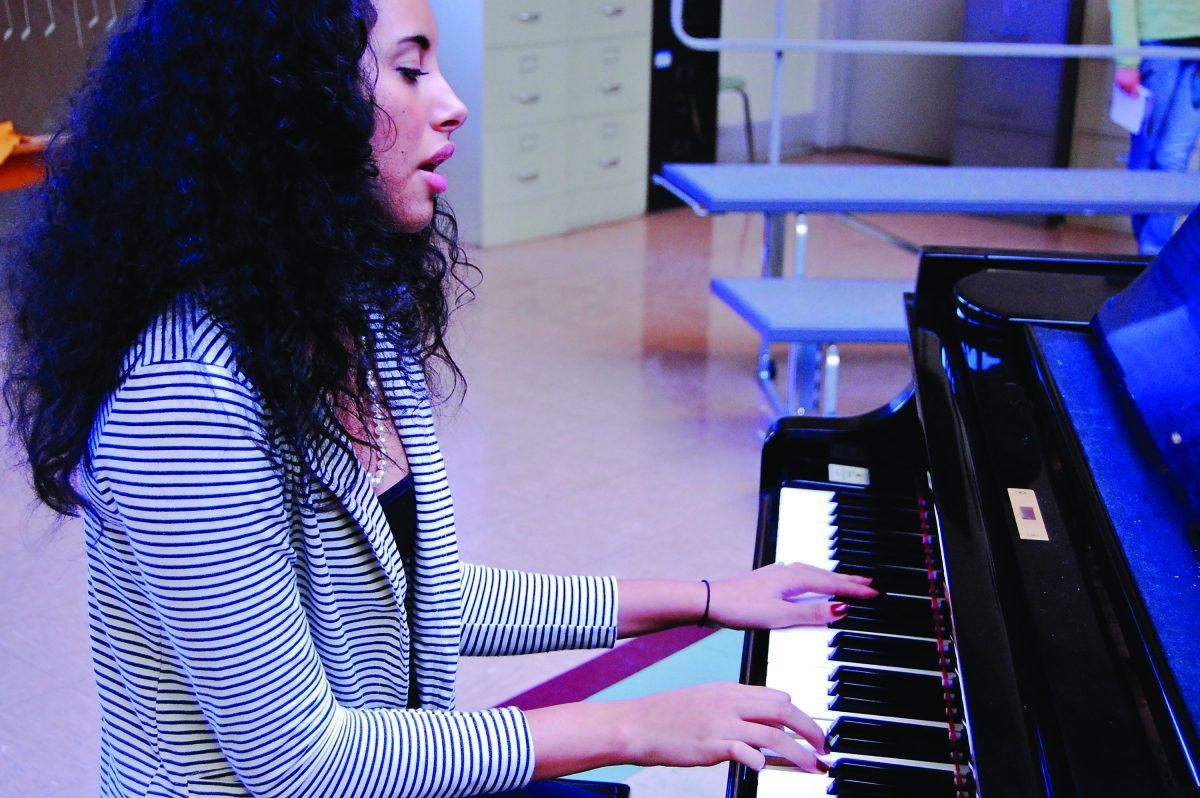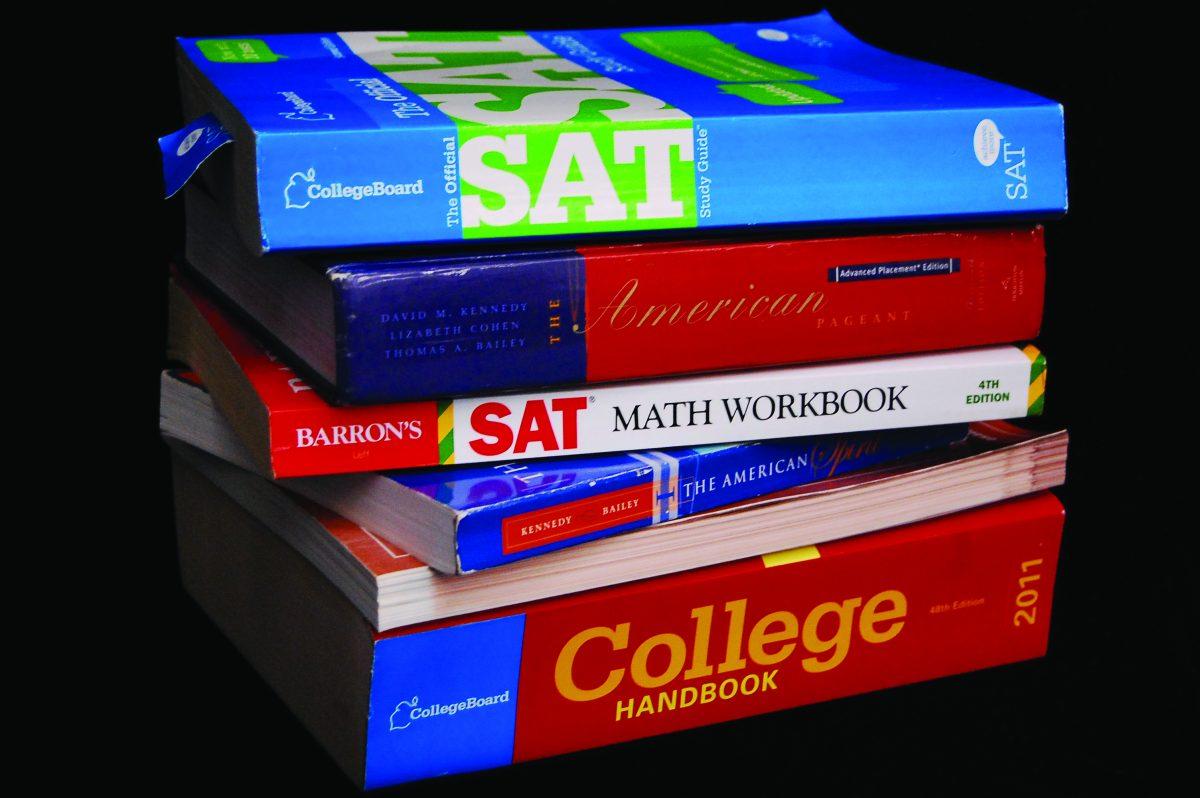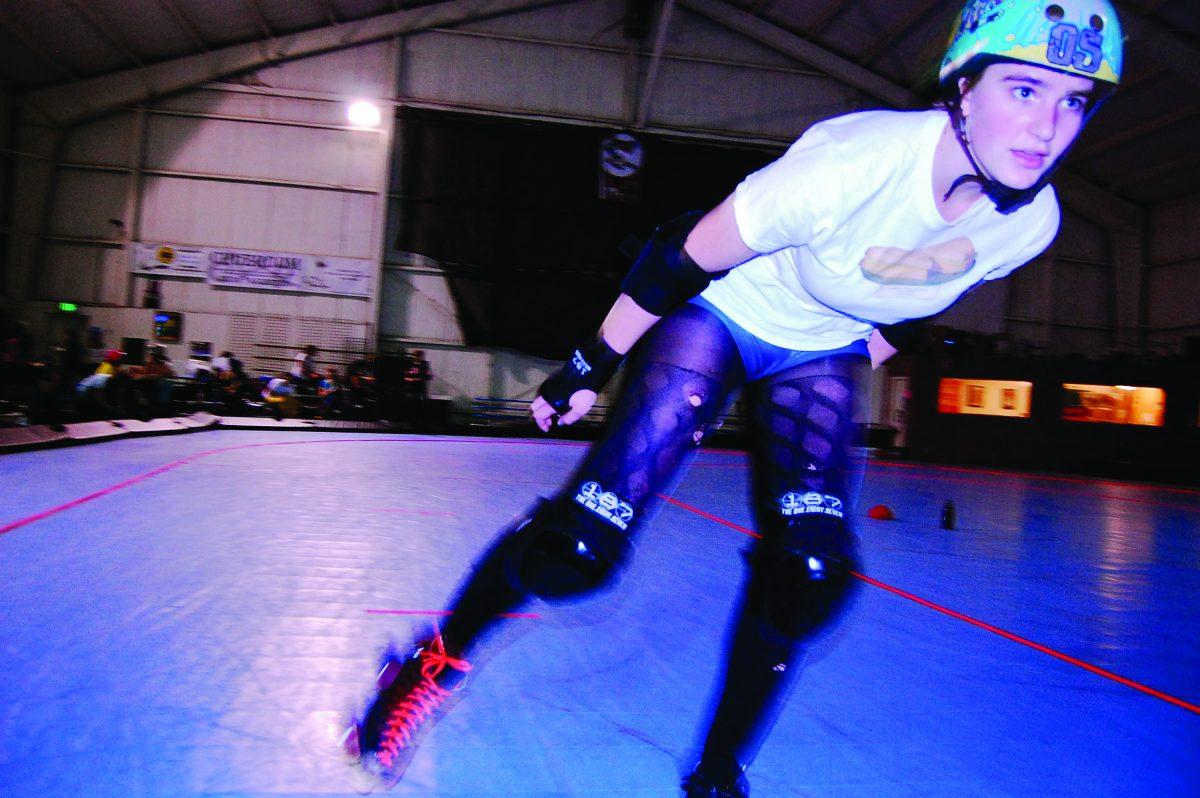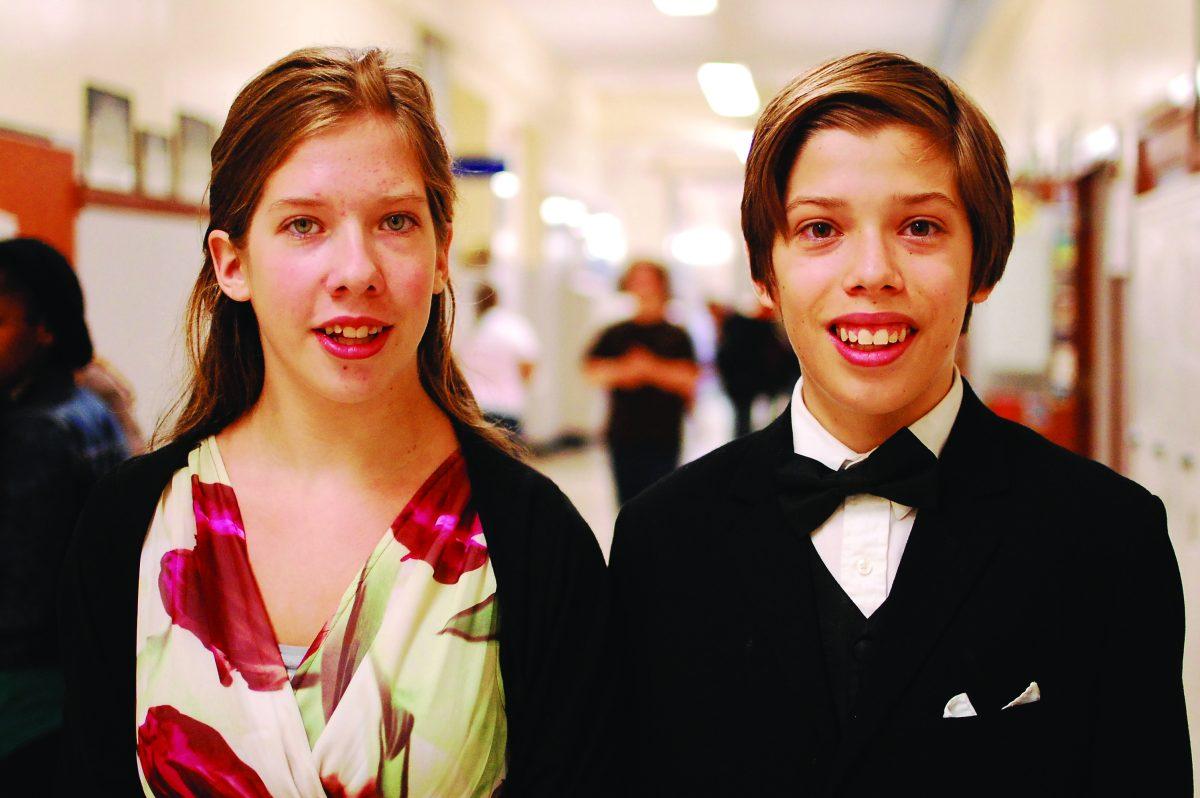Josh Miller remembers hearing the doctor utter the six words he’d feared most before going into a daze.“You’re going to need another surgery,” the doctor said at the appointment in mid-September.
Miller just sat there, zoning out his parents and the doctor as they discussed logistics.
He’d been through this before. Five months earlier, he visited his sister at her college in California. He played in a pickup soccer game and afterward his knee became so sore and swollen that he couldn’t run. It was a torn meniscus. He had to have surgery.
Now it was happening again, he thought to himself. Another surgery. Another torn meniscus. Another three months of grueling physical therapy.
To make matters worse, he would miss all of the high school soccer season. That’s a tough break for a senior playing in his last season. But it was doubly tough for Miller, who had already committed to Princeton University next fall to play college soccer.
“I feel sad about the fact that I can’t play during playoffs; the best time of the season,” he says about Grant’s current run in the state tournament. “But it’s just something I have to deal with. So far, I am very encouraged by my progress, so I think I’ll be able to get back to where I used to be.
In the world of competitive athletics, physical health is everything. Miller has played soccer at a very competitive level for years, earning accolades and attention from across the nation. Now, though, he faces perhaps his biggest test: Overcoming an injury to his knee and being cleared to play soccer at the Division I level.
Miller has doubts like any normal person, but his optimism and drive will help him recover. “I feel confident about the fact that I will get back to full strength, but it’s just going to take a long time and diligent work to make sure I get there.” he says.
Soccer has been a part of Miller’s life since he was a kid. At age 4, he used to tag along with his older sister, Tara, to her recreational league practices on the Hollyrood field.
The team was coached by their dad, Brad, who remembers Josh’s leadership skills even at that age. Everything he taught the kids on the team, he had taught Josh before, and remembers how Josh would help show the other kids what to do.
“He gradually improved to the point and grew physically where the girls no longer wanted Josh to continue to come to practice,” Brad Miller remembers.
Josh Miller played other sports like basketball, baseball and tennis. But he pursued club soccer. His parents remember watching him try out and make the under-14 national team in the summer after seventh grade.
Miller went through private training with coaches to work on his game and improve his speed. “After that, I knew he had the drive to go far,” Brad Miller says.
Josh Miller played for a few club teams in Northeast Portland before taking it up a notch. He tried out for the Westside Metros team in his age group and that’s when his ascent took off.
“It was kinda just a sport I played until eighth grade and then I got serious about it,” he recalls. “I started getting private training and also training by myself at Madeleine (School). Just go there for an hour every day and do different drills against the wall.”
At the club level, he traveled to San Diego numerous times. He played in tournaments in Dallas, Boise and New Mexico, as well as other places guest playing for other teams, most notably on a trip to England.
At the national level, he traveled to Mexico. Sophomore year, Josh attended a camp at Stanford, which was interested in recruiting him, but things didn’t pan out. “Stanford would have been my number one choice,” Miller says.
His parents kept him focused on his studies, but thoroughly supported his devotion to soccer. Before he got his license, they drove him to Beaverton twice weekly for practice. Sophomore year, when most athletes just begin thinking about college, his parents took him to the East Coast to check out schools.
“We wanted to show him options early,” Brad Miller recalls.
When he played in club tournaments, his parents made sure college coaches knew he was coming.
All the hard work paid off for high school, too. When tryouts rolled around his freshman year, Miller was a known commodity. Head coach Manolis Tjuanakis remembers thinking: “He didn’t play like a freshman. He wasn’t intimidated and was just very tactful and very confident.”
Miller continued to thrive at both levels. He was on the Grant team that won the state championship his freshman year. His club team won top honors in Oregon four years in a row.
After a tournament in Orlando with the regional team during his junior year, Miller received an e-mail from Princeton. He brushed it off, thinking it was a group e-mail sent to a number of players. A few weeks later, he received another e-mail, confirming the coaches’ interest in him and they invited him to visit.

Miller was originally worried that his meniscus tear would affect Princeton’s decision. But the coaches said they’d support him and he committed in early July. But medically, Josh was struggling. His surgeon estimated the recovery to be around four to six weeks, but after physical therapy for that long, he wasn’t healed. “I think he didn’t realize I was a high-level athlete,” Miller says.
Nevertheless, he began playing again. His mom, Susheela Jayapal, remembers his first club game back after tearing his meniscus the first time. “He looked so happy to be back on the field. I noticed his teammates feeding him the ball and he scored. He had a look of pure joy; I have a photograph of him with an enormous smile on his face.”
Miller entered the high school season optimistic. However, while running the mandatory two-mile trial around the track, he felt a familiar soreness in his knee. After he played 40 minutes against Jesuit in the season opener, Miller knew something wasn’t right.
“It didn’t hurt during the game; it just got really swollen after. The swelling got to the point where I couldn’t even run,” he remembers. Emotionally, it was difficult for me. I kept thinking to myself: ‘I should be back now. Like, why isn’t everything right?’ There’s also the possibility that it will never get back to normal.”
He knows deep down that the short recovery time when he first tore the meniscus led to the second tear. He’s not going to make the same mistake twice. He spends much of his free time rehabilitating the knee. He goes to physical therapy most days and is now up to running slowly and steadily.
Missing the high school season has been a huge disappointment for Miller. His friends and teammates miss having such a high-level competitor on the team.
“He’s one of those players where one player can make a difference,” says Riley Fortier, who plays stopper for Grant. “He can easily lead and motivate people to play better and work harder.”
Miller, a captain, has helped the team by serving as an assistant coach. He makes it to most practices and helps advise some of the team’s younger players.
Tjuanakis says even though he’s not on the field, his presence is still widely felt. “His support, encouragement and willingness to give coaching pointers to the young ones” is a plus for the team.
For the past few years, Josh ate, slept and breathed soccer, only to end up with two torn menisci. But Princeton supports him, even if his knee doesn’t right now.
He’s not sure what he wants to study in college. But later in life, he wants to be a soccer coach. “I don’t expect to pursue soccer professionally, so I want to be involved in coaching, because I will always have a passion for the game,” he says.



























